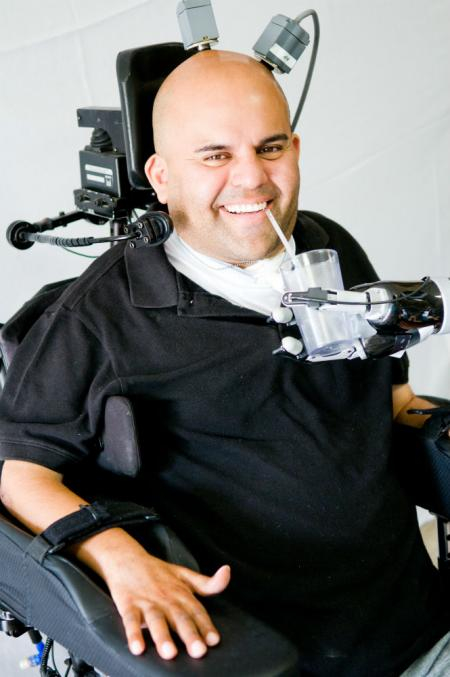ALS Association Doubles Funds After Last Years’ Ice Bucket Challenge

People who participated in last year’s Ice Bucket Challenge have helped to make a difference in the lives of ALS patients that live in the area of St. Louis. The ALS Association was able to double their donations, which increased the associations’ support for ALS patient care, education, and research. Due to the Ice Bucket Challenge success, the St. Louis chapter of the ALS Association doubled their support to Saint Louis University’s ALS Clinic, one of the 40 certified cents erof excellence in the United States.
According to the clinic director Ghazala Hayat, M.D., the ALS Clinic offers valuable resources for ALS patients and caregivers in the St. Louis area. The clinic is run by physicians from SLU and is held at SLU’s Medical Center twice every month, where patients and caregivers are consulted by neuromuscular specialists, psychiatrists and psychologists, neurologists, occupational, speech, respiratory and physical therapists, nurses, social workers, dietitians, equipment specialists, and representatives from the ALS Association consult with patients about their health and ensure they receive the best care available.
In addition to medications and therapy, the clinic helps with equipment and support to coordinate insurance. Caregivers also receive help from consultation with social workers to relief stress.
“At the end of day, we sit together and go over each patient’s case,” said Hayat, who also is a SLUCare Physician Group neurologist. “Then, a coordinated care letter is sent out to each patient. We identify companies that can provide good care. We work with hospice, too. And, patients can connect to us anytime they want. This is what coordinated care looks like.”
According to Hayat, patients with ALS who receive this personalized care increase their life expectancy by seven to 12 months, when compared to those patients who receive traditional care. “For any chronic condition, but especially for rapidly advancing illnesses like ALS, it is important to coordinate care. We want to hold patients’ hands as they deal with this illness. It is important to manage symptoms quickly. Maybe you’re depressed or not getting enough oxygen or nutrition. If we don’t coordinate quickly, symptoms can get worse. But, if we address these issues right away, we see patients perk up quickly”, Hayat added.
The ALS Association funds help to cover the costs associated with these services. “I don’t know how to explain it, but everyone get so drawn in to being a part of the clinic,” Hayat said. “Physical therapists, nurses, everyone. I see people on the phone or computer trying to track down new equipment, taking twice as long as the appointment is scheduled to last, just becoming very dedicated. There is something special about it. Once people start working at the clinic, they stick with it.”
According to Hayat, and although ALS is a discouraging disease, this coordinate support can help to manage patients’ symptoms and increase their life expectancy. The SLU also conducts research with to understand and ultimately find treatments for the disease. “The ALS Clinic really is something SLU should take pride in,” Hayat explained. “This is the best care that patients can receive, and it makes a difference in their lives. We don’t have cure but we do have hope”.






